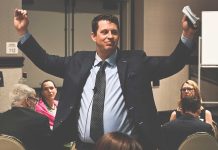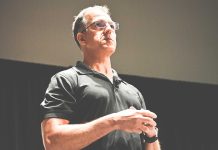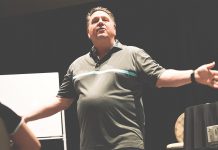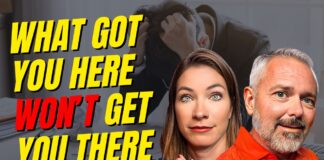How do you expect to succeed in real estate if you’re stumbling through your days half asleep? Peak performance in business begins in bed – with a good night’s sleep!
In this Harris VIP Mastermind Presentation, Julie Harris discusses “Why We Sleep: The New Science of Sleep and Dreams by Matthew Walker”. She’s going to review the important points of this groundbreaking book on sleep science & explain why proper sleep is so crucial for your real estate success.
Matthew Walker is the director of the Center for Human Sleep Science at the University of California, Berkeley, a research institute whose goal – possibly unachievable – is to understand everything about sleep’s impact on us, from birth to death, in sickness and health. No wonder, then, that people long for his counsel. As the line between work and leisure grows ever more blurred, rare is the person who doesn’t worry about their sleep.
Sleep in numbers
■ Two-thirds of adults in developed nations fail to obtain the nightly eight hours of sleep recommended by the World Health Organisation.
■ An adult sleeping only 6.75 hours a night would be predicted to live only to their early 60s without medical intervention.
■ A 2013 study reported that men who slept too little had a sperm count 29% lower than those who regularly get a full and restful night’s sleep.
■ If you drive a car when you have had less than five hours’ sleep, you are 4.3 times more likely to be involved in a crash. If you drive having had four hours, you are 11.5 times more likely to be involved in an accident.
■ A hot bath aids sleep not because it makes you warm, but because your dilated blood vessels radiate inner heat, and your core body temperature drops. To successfully initiate sleep, your core temperature needs to drop about 3 degrees.
■ The time taken to reach physical exhaustion by athletes who obtain anything less than eight hours of sleep, and especially less than six hours, drops by 10-30%.
■ There are now more than 100 diagnosed sleep disorders, of which insomnia is the most common.
■ Morning types, who prefer to awake at or around dawn, make up about 40% of the population. Evening types, who prefer to go to bed late and wake up late, account for about 30%. The remaining 30% lie somewhere in between.
So what can the individual do?
First, they should avoid pulling “all-nighters”, at their desks or on the dancefloor. After being awake for 19 hours, you’re as cognitively impaired as someone who is drunk.
Second, they should start thinking about sleep as a kind of work, like going to the gym (with the key difference that it is both free and, if you’re me, enjoyable). “People use alarms to wake up,” Walker says. “So why don’t we have a bedtime alarm to tell us we’ve got half an hour, that we should start cycling down?”
We should start thinking of midnight more in terms of its original meaning: as the middle of the night. Schools should consider later starts for students; such delays correlate with improved IQs. Companies should think about rewarding sleep. Productivity will rise, and motivation, creativity and even levels of honesty will be improved.
Sleep can be measured using tracking devices, and some far-sighted companies in the US already give employees time off if they clock enough of it. Sleeping pills, by the way, are to be avoided. Among other things, they can have a deleterious effect on memory.
Those who are focused on so-called “clean” sleep are determined to outlaw mobiles and computers from the bedroom – and quite right, too, given the effect of LED-emitting devices on melatonin, the sleep-inducing hormone.
Ultimately, though, Walker believes that technology will be sleep’s saviour. “There is going to be a revolution in the quantified self in industrial nations,” he says. “We will know everything about our bodies from one day to the next in high fidelity. That will be a seismic shift, and we will then start to develop methods by which we can amplify different components of human sleep, and do that from the bedside. Sleep will come to be seen as a preventive medicine.”



























